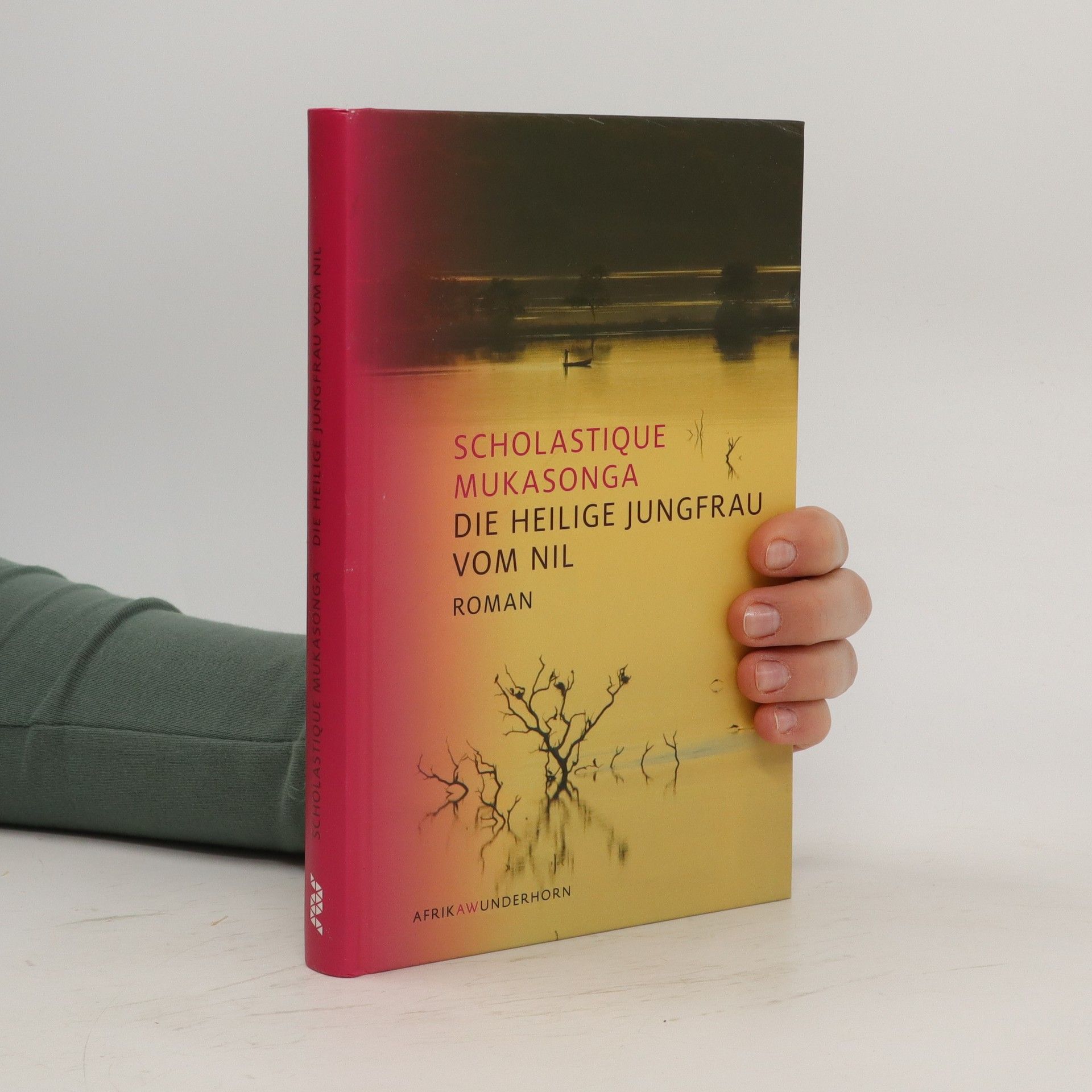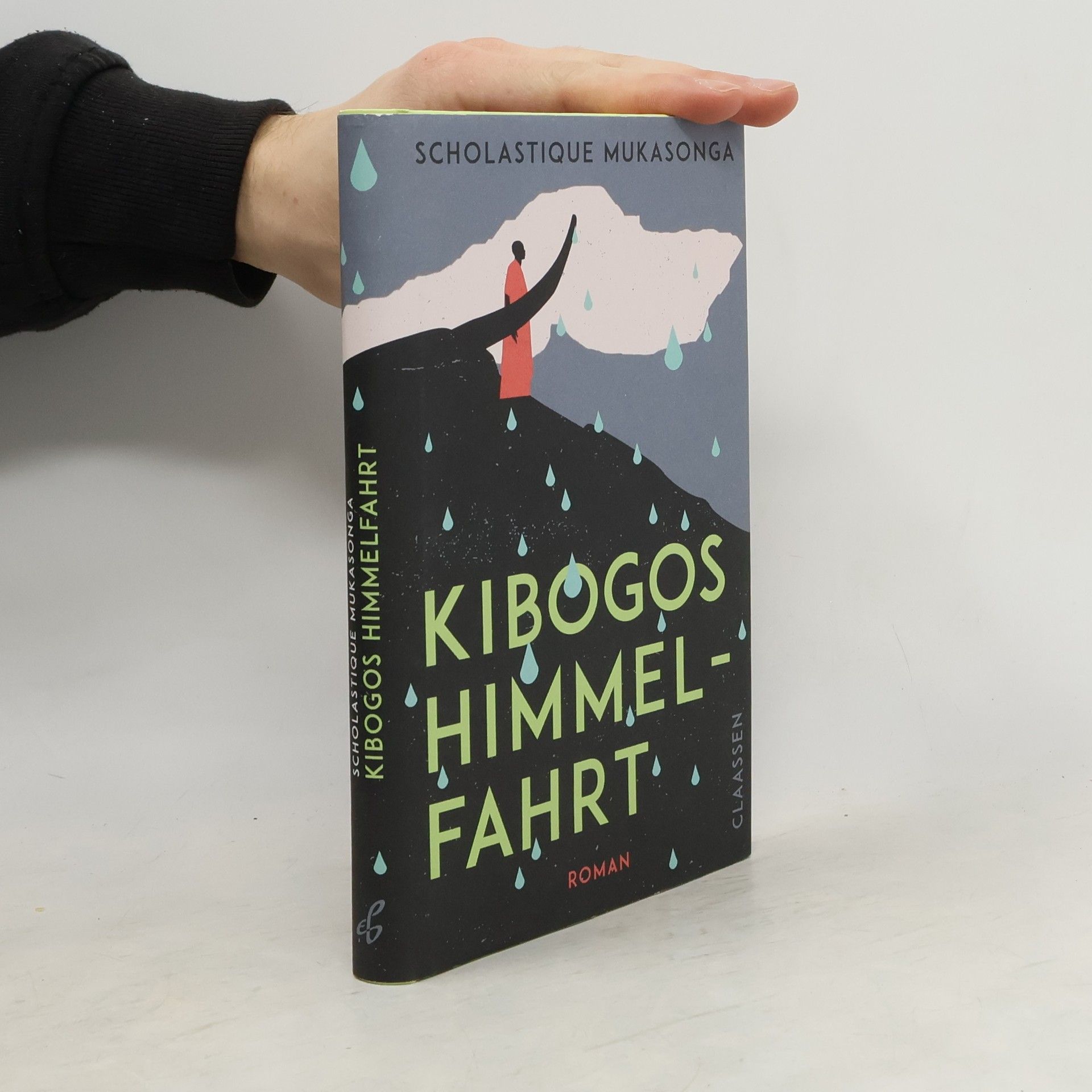Kibogos Himmelfahrt
Roman | Nominiert für den Internationalen Literaturpreis!
Scholastique Mukasongas Schaffen ist tief geprägt von der historischen Gewalt und den Traumata ihrer Heimat Ruanda. Sie erforscht Themen wie Exil, Erinnerung und die anhaltenden Auswirkungen von Konflikten mit tiefem Einfühlungsvermögen und scharfer Beobachtungsgabe. Ihre Werke tauchen oft tief in die Komplexität von Identitäten ein, die inmitten verheerender Verluste und Vertreibungen geschmiedet werden. Mukasongas Prosa ist sowohl präzise als auch bildhaft und zieht die Leser in intime Erzählungen, die die Widerstandsfähigkeit des menschlichen Geistes beleuchten.







Roman | Nominiert für den Internationalen Literaturpreis!
Am 7. April 2014 jährte sich zum zwanzigsten Mal der Völkermord in Ruanda. Vor dem Hintergrund der aufkommenden Gewalt, die 1994 zum verheerenden Völkermord eskaliert, schildert Scholastique Mukasonga den Schulalltag in den 1970er Jahren. Töchter ranghoher Politiker, Militärs, Geschäftsleute und Diplomaten einerseits, sowie mittelloser Bauern andererseits leben im christlichen Mädcheninternat Notre-Dame-vom-Nil zusammen. Hoch in den Bergen, nahe einer der Quellen des Nils erhalten sie unter strenger katholischer Aufsicht, fernab aller Verführungen der Großstadt, ihre Schulbildung. Sie sind größtenteils Hutu, die Aufnahme der Tutsi ist durch eine 10% Quote geregelt. Die schon angespannte Lage spitzt sich weiter zu, als zur Weihung einer neuen Marienstatue an der Nilquelle auch die militante ruandische Jugend geladen wird. Haben die Tutsi-Mädchen richtig eingeschätzt, wie gefährlich die Lage für sie wird? 'Ergreifend und schonungslos' Le Monde
Die ruandische Autorin Scholastique Mukasonga erinnert sich an ihre Mutter Stefania. „Die Frau auf bloßen Füßen" ist eine Liebeserklärung an eine starke Frau, deren Obsession es war, ihre Kinder zu schützen: vor dem Verlust des kulturellen Erbes der Tutsi und vor allem vor dem gewaltsamen Tod. Es gelang ihr letztendlich nicht: Zusammen mit 36 Familienmitgliedern fiel Stefania 1994 dem Genozid in Ruanda zum Opfer. Die Autorin, einzige Überlebende, findet viele Jahre später eine wunderbar poetische, klare Sprache für die Erinnerung an das Leben ihrer Familie im kargen Südruanda, wo viele Tutsi-Familien in den 60er Jahren als Vertriebene lebten. Umgeben vom wachsenden Hass der Hutu hatte sich Stefania hier mit Stolz ein Leben in der Tradition ihrer Kultur erkämpft. Scholastique Mukasonga lässt den Alltag der Tutsi-Gemeinde mit Wärme und Humor wieder auferstehen. Sie gibt den namenlosen Toten des Völkermordes ihre Namen und Geschichten zurück und einer alten Kultur ihre Schönheit.
Etwas nicht zu mögen, ist einfach. Etwas zu mögen hingegen, ist kompliziert. Dann kommen wir nicht darum herum, uns auch mit jenen Seiten der Medaille auseinanderzusetzen, die uns weniger gefallen. Wir müssen mit dem Gemochten in Beziehung treten, mit ihm verschmelzen, es verschieben, es umarmen, es verändern, es lieben. Fan-Fiction wagt es, sich das Gemochte anzueignen und sich gleichzeitig vor ihm zu verneigen. Bislang gab es Fan-Fiction vor allem in eigens dafür eingerichteten Ecken des Internets. Um diesem so vielfältigen wie verbreiteten Genre endlich auch die materielle Würdigung zukommen zu lassen, die es verdient, gibt es jetzt DANKE – Das Fan-Fiction-Magazin, eine halbjährlich erscheinende Literaturzeitschrift.
Mukasonga unsparingly resurrects the horrors of the Rwandan geocide while lyrically recording the quieter moments of daily life with her family—a moving tribute to all those who are displaced, who suffer. Mukasonga’s extraordinary, lyrical, and heartbreaking book … is indispensable reading for anyone who cares about the endurance of the human spirit and who hopes for a better world. — Lynne Sharon Schwartz, Los Angeles Review of Books Scholastique Mukasonga’s Cockroaches is a compelling chronicle of the author’s childhood in the years leading up to the 1994 Rwandan genocide. In a spare and penetrating tone, Mukasonga brings to life the scenes of her family’s forced displacement from Rwanda to neighboring Burundi. With a view made lucid through time and pain, Mukasonga erodes the distance between her present and her past, resurrecting and paying homage to her family members who were massacred in the genocide, but also, in movingly simple language, the beauty present in quiet, daily moments with her loved ones. As lyrical as it is tragic, Cockroaches is Mukasonga’s tribute to her family’s suffering and to the lingering grip of the dead on the living.
The stories in Igifu summon phantom memories of Rwanda and radiate with the fierce ache of a survivor. From the National Book Award finalist who Zadie Smith says, "rescues a million souls from the collective noun genocide." Scholastique Mukasonga's autobiographical stories rend a glorious Rwanda from the obliterating force of recent history, conjuring the noble cows of her home or the dew-swollen grass they graze on. In the title story, five-year-old Colomba tells of a merciless overlord, hunger or igifu, gnawing away at her belly. She searches for sap at the bud of a flower, scraps of sweet potato at the foot of her parent's bed, or a few grains of sorghum in the floor sweepings. Igifu becomes a dizzying hole in her stomach, a plunging abyss into which she falls. In a desperate act of preservation, Colomba's mother gathers enough sorghum to whip up a nourishing porridge, bringing Colomba back to life. This elixir courses through each story, a balm to soothe the pains of those so ferociously fighting for survival. Her writing eclipses the great gaps of time and memory; in one scene she is a child sitting squat with a jug of sweet, frothy milk and in another she is an exiled teacher, writing down lists of her dead. As in all her work, Scholastique sits up with them, her witty and beaming beloved.
"The story of the author's mother, a fierce, loving woman who for years protected her family from the violence encroaching upon them in pre-genocide Rwanda. Recording her memories of their life together in spare, wrenching prose, Mukasonga preserves her mother's voice in a haunting work of art."--Provided by publisher
This work offers a witty and incisive examination of colonialism, blending personal memories with historical reflections. It features strong female characters and draws on archival materials to enrich its narrative. As a prominent figure in French-Rwandan literature, the author sheds light on the complexities of identity and the lingering effects of colonialism, making for a compelling and thought-provoking read.
"Personne ne savait plus trop qui était cette présumée princesse africaine appelée Nyabinghi. Son nom était venu s'échouer sur les plages de la Jamaïque en d'étranges circonstances... Le 12 décembre 1935, peu de temps avant l'invasion de l'Ethiopie par l'Italie fasciste, paraissait dans le journal Jamaïca Times un article intitulé "Une société secrète pour détruire les Blancs" : vingt millions de nègres, au nom d'une mystérieuse reine appelée Nya-Binghi, allaient déferler sur l'Europe et l'Amérique, Nya-Binghi signifiant "mort aux Blancs". Les rastas, qui adoptèrent le nom de nyabinghi, n'avaient rien de sanguinaire et, dans la torpeur bienheureuse de l'herbe sacrée, ne songeaient nullement à massacrer quiconque. Les tambours suffisaient à leur rébellion". Du Rwanda à la Caraïbe, à l'Amérique : mystères, initiations, naissance de la musique rasta, et, dans les bouleversements du monde, quand bat le tambour et le coeur de l'Afrique, un crime fondateur... Qui a tué l'inoubliable diva Kitami, surnommée aux quatre points de l'horizon "l'Amazone noire" ?...
"Cette femme aux pieds nus qui donne le titre à mon livre, c'est ma mère, Stefania. Lorsque nous étions enfants, au Rwanda, mes sœurs et moi, maman nous répétait souvent : "Quand je mourrai, surtout recouvrez mon corps avec mon pagne, personne ne doit voir le corps d'une mère." Ma mère a été assassinée, comme tous les Tutsi de Nyamata, en avril 1994 ; je n'ai pu recouvrir son corps, ses restes ont disparu. Ce livre est le linceul dont je n'ai pu parer ma mère. C'est aussi le bonheur déchirant de la faire revivre, elle qui, jusqu'au bout traquée, voulut nous sauver en déjouant pour nous la sanglante terreur du quotidien. C'est, au seuil de l'horrible génocide, son histoire, c'est notre histoire." Scholastique Mukasonga.